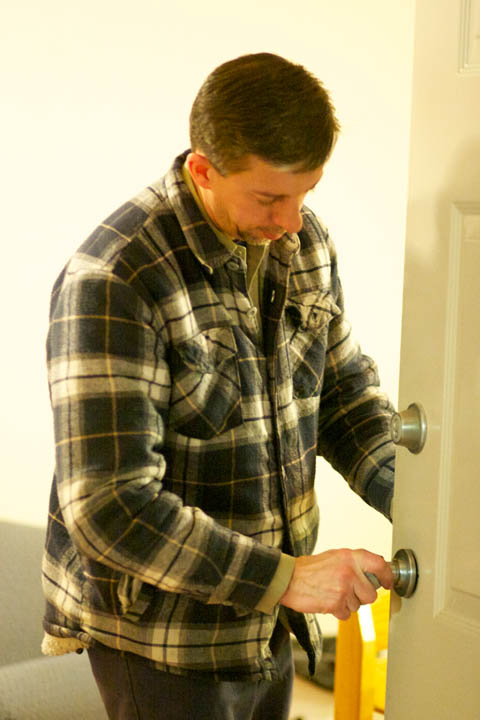Last fall, the Department of Public Safety and Security Services welcomed director Roland Corvington to Saint Louis University, who went straight to work to heighten the visibility of safety measures on campus. As the new semester begins, members of the SLU community can expect these measures to continue to increase.
These initiatives will be supported by a portion of the $1.5 million allocated in the 2012 fiscal year budget for University spending on non-academic units, said SLU President Lawrence Biondi, S.J., in his January message.
“My plan for things to come will [be in] respect to my budget and advances in technology, or the incorporation of technology into our operations to make things safer here,” Corvington said.
Improved notification systems, which utilize text-messaging, installation of additional blue emergency contact pillars and the possibility of purchasing the experimental Trikes that were seen on campus last semester could all be included in Corvington’s attempts to continually improve campus security.
“Another area that I’m looking to try and improve is utilizing a multi-year, multi-phase approach to the procurement and installation of external cameras to cover such areas as our surface lots,” Corvington said.
Many of Corvington’s new initiatives are technologically based, but he said he also wants to make strides in other areas that could improve campus safety, including communicating safety tips with students.
Though it is the responsibility of DPSSS to maintain safety on campus, Corvington said that the officers cannot be the only individuals held responsible for student wellbeing. Thus, the department initiated various campaigns to raise student awareness of actions which have been suspected of leading to opportunities for crime.
Sergeant Pasquale Signorino said the department has increased its “proactive or informational patrolling” in attempts to eliminate crime.
“These criminals are opportunists and we get to control their opportunity,” Signorino said. “That is the key to helping resolve these issues.”
Such instances of proactive patrolling and opportunity elimination include safety reminder cards which can be found on vehicles or student housing after a DPSSS officer has patrolled the area. The cards describe either items left visible in vehicles or doors left unlocked, Signorino said.
DPSSS has also installed new locking mechanisms in the Village apartment complex in efforts to alleviate crime. The locks are self-locking and will prevent any crimes that occurred from the neglect to lock front doors.
The department has also hired six additional officers allowing more patrolling of the medical campus and increased visibility on the Frost campus, something which students have taken notice.
“I like the fact that they are more visible,” junior Philip Reyes said. “I definitely feel their presence.”
Junior Erin Eisenhard has also noticed more officers on bike patrol and on night patrols. However, not every student has felt an increase in DPSSS presence.
“It seems like they haven’t done much after the break-ins in the Village,” sophomore Ross Buch said. “They said they were stepping up patrols, but you don’t see much of a difference at all.”
While the student sentiments toward DPSSS presence may vary, Signorino said campus is mostly a very safe place and patrols have increased.
However, he also acknowledged the fact that SLU is located within an “urban environment.”
“[Crimes] happen in urban environments. It doesn’t necessarily happen on campus, but it’s happening around us,” Signorino said. “In order to maintain their safety, people need to understand, or need to be educated on what’s going on around us.”
Signorino said that students have been improving in terms of educating themselves and asking questions, both of which have led to the decrease in crimes on campus.
According to Signorino, there still are crimes occurring, specifically car break-ins, but the thefts are mostly of car stereos as opposed to iPods, laptops and purses, which were common items of criminal interest several months ago.
Signorino explains that car stereo thefts, while still serious crimes, are seen as “crimes of desperation,” as the stereos are less profitable for criminals than other commonly stolen items.
The fact that a stereo is being stolen indicates there is a sharp decrease in opportunity for more expensive items to be lifted, Signorino said.
Even though the theft of a stereo is still a crime and individuals are still victimized, Signorino said these desperate criminal acts are a last resort and believes more severe crimes are being prevented by campus community action.
Additional reporting by Kati Cundari











